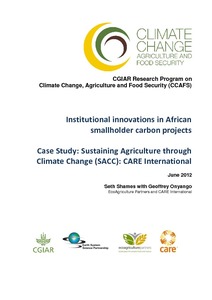Environmental Economics in Sub-Saharan Africa : Towards Sustainable Development
Environmental concerns must be
integrated into the development process, but African
countries still face many challenges as they work to achieve
development that is economically, socially, and
environmentally sustainable. Many countries have already
launched National Environmental Action Plans (NEAPs) and
National Conservation Strategies; however, in preparing and
implementing them, economics was used sparingly because





